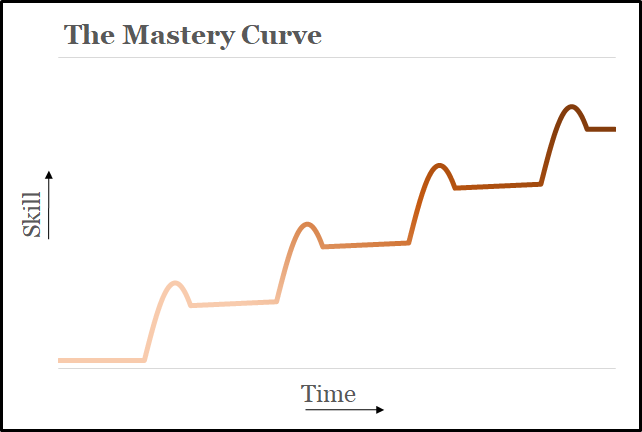Introduction
For apparent reasons, I have a great deal of time on my hands at the moment that I try to use pragmatically: improving my physique, reading books, learning a new language or an instrument from scratch.
Learning to play guitar was one project I pursued for some time in my early 20s, but I abandoned this hobby in favor of other activities and eventually for the time-consuming endeavor gaining an engineering degree.
So my electric and acoustic guitar were eking out a rather miserable existence in my basement for almost twenty years as I decided to pick them up again for reviving this actually very enjoyable and rewarding hobby (after I’d toyed briefly with the notion to sell all my musical equipment).
Needless to say, any guitar skills I had back in the days had vanished all but completely and I recommenced from square one.
Therefore, my job was in essence to conceive practicable cues to keep the wheel spinning; I would have to practice every day and to leave my comfort zone if I wanted to be halfway serious.
Otherwise, my time would be better spent on something else.
Mastery Curve
Inevitable during the process of acquiring a new skill (like learning an instrument or a language) are plateaus in one’s learning curve.
At the very beginning, you usually make progress quickly. But then, after a while, you are starting to struggle. You aren’t improving that fast any more. You may even think your skills are in a decline.
That’s the point where many people give up, unfortunately.
The problem isn’t lack of talent in most cases however, but lack of endurance.
And people who give up early lack basic comprehension of how the so-called Mastery Curve essentially works, and that mastering a particular skill requires usually up to 10.000 hours of concentrated effort and practice.

The American author George Leonard described the Mastery Curve in his 1992 book “Mastery: The Keys to Success and Long-Term Fulfillment”, and since then the so visualized process obtained popularity on blogs, books and further publications.
A key message is on the other hand, that you can never truly master a skill. But of course it’s possible for any individual to approach the line of mastery asymptotically, provided resources aren’t limited.
Mastering guitar
After making progress pretty fast in the first three months with about two hours of practice every day, I was close to quit and forget about this project respectively my guitar for good.
I still couldn’t play riffs perfectly that I had been practicing for several weeks. I wasn’t able to play simple chord transitions on my acoustic guitar, and, probably because of frustration, I started to make many rookie mistakes again.
But there were undoubtedly small successes, when I took the trouble to look at it soberly.
I was able to keep up with one fast riff for the first time ever, after playing it for months on end and not seeing much of an improvement. I could grasp the pattern of certain tabs in some fifteen minutes, what took me hours months before. I wasn’t able to play the riffs flawlessly still, but nevertheless the quickness of this small process within the process astonished me.
It seemed that I had sweated it out past the first hump, finally.
Conclusion
By now, I’ve been working on my little project for almost a year.
I am not a naturally gifted person, be it learning languages, writing blog-articles (I am still terrible at that), engineering or playing the guitar.
But even an average person like me can acquire above-average skill levels with hours upon hours of monotonous practice and the right philosophies.
If I can do so, everyone else can. Even more so in the information-era where virtually any knowledge is available in books, videos or internet-sources.
The resource time remains as the most important limiting factor.
But apart from time-management issues, an able-bodied person has no actual excuses for not attaining above-average results, whatever she chooses to do and fits in with her personal interests.
Literature
- Mastery: The Keys to Success and Long-Term Fulfillment – George Leonard, Plume 1992; ISBN 978-0452267565
- Mastery – Robert Greene, Profile Books LTD 2012; ISBN 978-1781250914
- Outliers – Malcolm Gladwell, Penguin Books; ISBN 978-0-141-04302-9